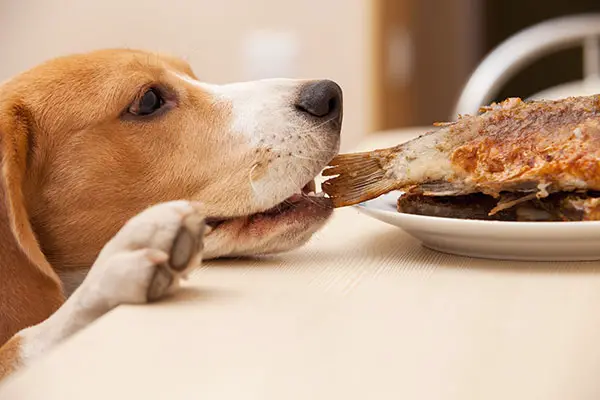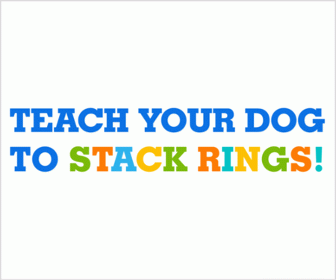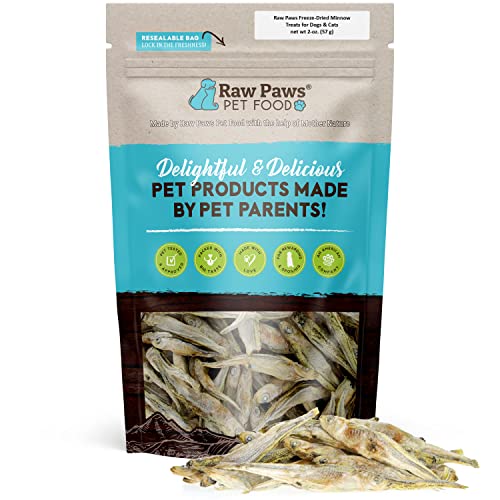It’s common knowledge that dogs love to gnaw on bones. Bones have a meaty flavor and rough texture; a combination that’s sure enough to appeal to any dog.
While most dogs prefer to chew bones of farm animals like cattle and poultry, other dogs wouldn’t mind sinking their teeth into fish bones.
But can dogs eat fish bones?
While dogs can perfectly gnaw on fish bones, they probably shouldn’t. According to veterinary experts, fish bones (raw or cooked) are more brittle and fragile than the bones from larger animals. Therefore, these bones can easily disintegrate and cause massive lacerations in your dog’s mouth, gut, or stomach. Fish bones can also lodge in a dog’s throat, thereby becoming a choking hazard.
The consequences of eating fish bones can range from mild to life-threatening. It all depends on the amount of fish bones that your canine friend has ingested.
Small chunks of fish bones may not be a problem for most dogs. However, huge amounts could cause massive organ perforation, leading to the death of your adorable pooch. All the same, it’s important to understand the signs to watch out for if you suspect that your dog has swallowed fish bones.
This post highlights everything you need to know about dogs and fish bones. Some of the areas the article shall address include the potential risks of fish bones for dogs and what you can do to prevent these bones from wreaking havoc in your dog’s system.
Are Dogs Attracted To Fish Bones?
Cats have a deep love for seafood. However, many dogs are generally repulsed by the smell, taste, and texture of seafood. So, dogs are naturally not a fan of fish. But that doesn’t stop pet owners from incorporating fish into their dogs’ feeding routine.
Fish (both the flesh and bones) comes with a cocktail of nutritional benefits that your canine friend can benefit from. Like all seafood, fish is packed with omega-3 fatty acids which are famous for their powerful antioxidant properties. Fish also contains other vital minerals and vitamins, including protein, calcium, magnesium, and zinc.
Indeed, there are numerous nutritional benefits that your dog can accrue from gnawing on fish bones. But as you shall find in the next session, fish bones also come with inherent dangers to most dogs.
- Works as a dog food topper – For pet parents looking for an alternative to capsules, raw treats, or soft chews, all it takes is a few pumps of Salmon…
- A tasty & body nourishing treat for cats & dogs – Essential fatty acids for a healthy coat.
- Powerful Omega Fatty Acids – This premium fish oil liquid formula is loaded with the healthy Omega-3 fatty acid (with epa and dha) to support health…
Last update on 2025-01-15 / Affiliate links / Images from Amazon Product Advertising API
What Happens If A Dog Eats A Fish Bone?
There’s a range of medical issues that could occur if a dog swallowed fish bone.
As we already pointed out, fish bones are more brittle and fragile than the bones of larger animals. Therefore, they can easily splinter, causing lacerations in your dog’s mouth. The most obvious symptom of oral lacerations include bleeding gums and swelling. Depending on the severity of the cuts, your dog may also refuse to eat or drink.
Besides causing lacerations to a dog’s gums, splintered bone fragments may also perforate your dog’s esophagus, stomach, intestines, anus, or any other section of his alimentary canal.
Internal organ perforation is a life-threatening medical emergency that requires urgent intervention. If it goes unattended, organ perforation could lead to a condition known as peritonitis, or abdominal inflammation.
Swelling and abdominal tenderness are the tell-tale signs of peritonitis. The dog may also refuse to lie down to avoid the excruciating pain associated with doing so. Other potential symptoms to watch out for include blood in vomit and/or fecal matter, loss of appetite, fatigue, labored breathing, and rapid weight loss.
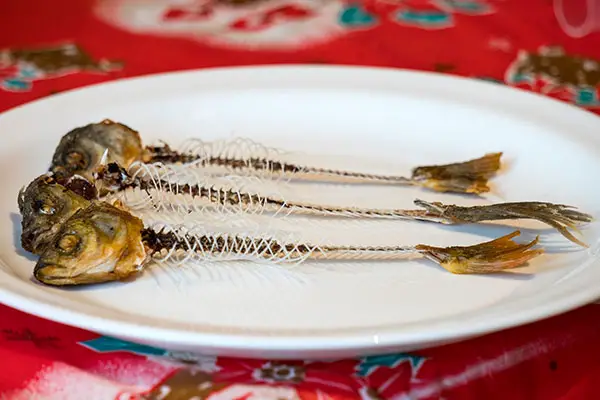
According to veterinary experts, a dog with peritonitis has between a 50% and 70% chance of dying. Which underscores the importance of seeking urgent medical intervention if your dog ate some fish bones and has developed any of the above symptoms of peritonitis.
So, can fish bones kill a dog?
Death from fish bones may not be instant. But the side effects associated with fish bones, such as organ perforation, might lead to your dog’s eventual death.
The following are additional risks associated with fish bones for dogs;
1. Dental Problems
Since fish bones are tiny and prone to splintering, they might get logged in your dog’s teeth or their gums. When that happens, a host of dental issues may follow.
A dog with fish bone fragments lodged between his teeth may retch in an attempt to ease the discomfort. Retching is an unsuccessful attempt to vomit. It might also be a sign of asphyxiation.
2. Throat Obstruction
Throat obstruction, also known as throat logging, is another potential risk of fish bones for dogs.
When fish bones get stuck in your dog’s esophagus, they typically block the passageway for food and drinks. The most obvious signs to watch out for here include retching, coughing, and loss of appetite.
- Real Alaskan Salmon Oil – Helps Maintain Healthy Skin + Glossy Coat – These natural salmon flavored salmon oil supplement snacks are made using…
- Gentle, Natural + Made In The U.S.A. – At PetHonesty we’re committed to premium quality ingredients and strict safety standards. Our dog chews are…
- Soft Chews That Dogs Actually Want! – Our salmon dog supplements come in the form of a delicious soft chew flavored with natural salmon that your dog…
Last update on 2025-01-04 / Affiliate links / Images from Amazon Product Advertising API
3. Intestinal Obstruction
Intestinal obstruction from fish bones occurs when a dog swallows huge amounts of fish bones. Once these bones get to your dog’s stomach, the tiny fragments may come together and begin to move through the rest of the animal’s alimentary canal in one mass.
But since the bones are harder and travel through the dog’s gut in one large mass, they could encounter smaller spaces and cause blockage.
Depending on where the blockage occurs, it could prevent your dog’s body from absorbing already digested food or getting rid of fecal matter. Therefore, intestinal blockage is another life-threatening condition that requires urgent medical intervention. Symptoms generally include vomiting, diarrhea, constipation, and bloody stool.
What to Do If Your Dog Ate Fish Bone
Having just reviewed the potential risks of fish bones for dogs, you’re probably now wondering, ‘what should I do if my dogs ate fish bones?’
The first thing to do if your dog ate fish bone is to determine the amount of fish bones that the animal has consumed. This information will help you to predict the nature and severity of the side effects to expect.

It’s also important to establish how long ago your dog consumed the fish bones. That will help you to plan a veterinary visit more efficiently, in case the situation calls for it.
Once you know the quantity of fish bone that your dog has consumed and how long ago the animal ate the bones, the next thing to do is address the symptoms on a case-by-case basis.
You can start by opening your dog’s mouth and conducting a manual examination for any fish bone fragments lodged between his teeth. While you’re at it, also check the dog’s gums for any lacerations.
You might also try inducing vomiting. To do that, take a cupful of hydrogen peroxide and squirt the liquid into the dog’s mouth using a medicine dropper. Your pooch will usually vomit in around five minutes. Inducing vomiting is especially helpful in clearing any fish bone fragments that could be stuck in your dog’s throat or stomach.
Another home remedy you can pursue is giving the dog enough water or liquid foods. The goal is to increase the animal’s bowel movements with a view to checking for evidence of fish bones in his stool. Generally, fish bones in your dog’s stool is great news as it shows that less of the bones are left in his system.
If your dog is too constipated, you might consider offering him fiber-rich foods or laxatives to induce diarrhea.
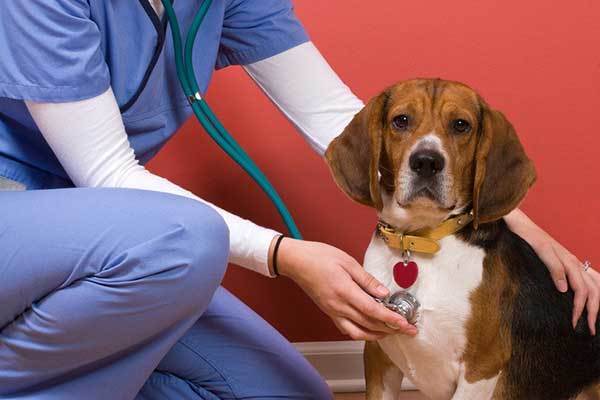
Most importantly, remember that the above interventions shouldn’t replace the need for professional checkups. Regardless of the amount of fish bone that your dog has swallowed, it’s always advisable to take the animal for veterinary examination.
Your vet will conduct a host of exams, including x-rays and ultrasounds, to establish the presence of intestinal blockage or organ perforation. Depending on the severity of the situation, the vet may recommend a surgical procedure.
Are There Fish Bones That Your Dog Can Safely Eat?
Although we’ve already mentioned it throughout this post, it warrants repeating that fish bones are highly dangerous to dogs. So, if you’re adamant about feeding fish bones to your canine friend, it’s important to proceed with caution. That includes knowing whether to feed raw or cooked fish bones to your dog.
Can dogs eat cooked fish bones?
As a dog owner who’s determined to feed fish bones to his pooch, it’s not unusual to find yourself wondering, are cooked fish bones ok for dogs?
Now, cooked fish bones are okay for dogs to the extent that cooking destroys many of the disease-causing bacteria that raw fish usually harbor. But cooking also softens fish bones, making them even more prone to splintering than raw bones. So, as far as the risks of cuts and lacerations associated with fish bones in dogs are concerned, it’s safer to feed your pooch raw as opposed to cooked fish bones.
Also, cooking may result in the introduction of certain ingredients considered toxic to dogs. Examples include excessive fat, salt, and spices like onions.
It could happen that your dog has eaten cooked fish bones and you’re now wondering, ‘my dog ate cooked fish bones, what do I do?’
Well, the best thing to do if you discover that your dog has ingested cooked fish bones is to watch out for the signs of lacerations, choking, or obstruction.
- JUST ONE INGREDIENT: This high protein dog chew is made with 100% Wolffish skins, loaded with Omega-3s.
- HEALTHY, NATURAL RAWHIDE ALTERNATIVE: Easily digestible with an extended chew time
- HUMAN GRADE: Unlike most pet food, which is feed grade, this recipe is 100% human grade – made with human grade ingredients and produced in a human…
Last update on 2025-01-04 / Affiliate links / Images from Amazon Product Advertising API
Can dogs eat raw fish bones then?
Just like cooked fish bones, raw fish bones are generally discouraged for dogs. That’s for the simple reason that these bones present the risks of blockage and organ perforation. Besides, raw fish bones come with the risks of disease-causing microorganisms. If you must feed raw fish bones to your dog, go for fresh bones.
Raw versus cooked fish bones for dogs, which is better?
Evidently, both raw and cooked fish bones present potential hazards to dogs. But if you must choose between the two, you’re better off with raw bones. Just be sure to wash the bones thoroughly to eliminate any bacteria.
Another best practice is to opt for soft-boned fish varieties, such as sardines.
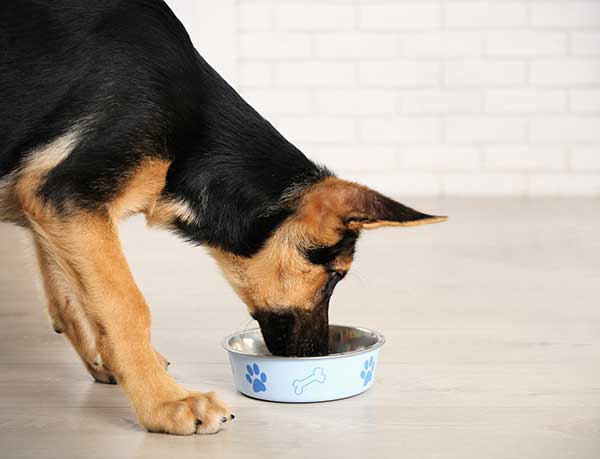
It’s not unusual to come across a dog owner wondering, ‘my dog ate whole fish with bones, should I be worried?’
While all fish bones are potentially dangerous to dogs, soft-boned fishes tend to be safer. So, there’s usually no cause for alarm if your dog eats whole fish bones, particularly if the bones belong to soft-boned fish varieties. For such kinds of fish, the only thing you’d need to do is remove the much harder backbone.
Last but not least, you can consider grounding raw fish before feeding it to your dog. Ground fish is not only easier to chew. It’s also easier to digest and absorb into the dog’s system. Just place the bones in a meat grinder or food processor and ground them to a fine powder. Then sprinkle the powder over your dog’s regular food.
Other Frequently Asked Questions About Dogs and Fish Bones
Can puppies eat fish bones?
If you own a puppy who loves fish bone, you may occasionally find yourself wondering, ‘my puppy accidentally ate fish bones, should I be worried?’
Now, anything that’s potentially risky for dogs in general will almost certainly harm puppies. And fish bones are no exception.
As a caring and responsible dog owner, you should endeavor to keep fish bones as far away from your puppy as possible. It would also help to understand what to do when puppy eats fish bone.
As with adult dogs, you’ll need to determine the amount of bones that your puppy has consumed in order to gauge the severity of side effects to expect. You can then go ahead and administer emergency treatments like inducing vomiting or diarrhea. Most importantly, remember to visit the vet before things get out of hand.

Can dogs eat fish head?
Fish head is basically one large mass of bone, cartilage, and brain. That already makes it potentially harmful to dogs.
If you discovered that your dog ate fish head, it’s advisable to take action immediately. That’s the surest way to prevent any risks of obstruction or lacerations that might result from the numerous bones in fish head.
Final Word
Dogs should not eat fish bones because of the inherent dangers that these bones present, including obstruction and organ perforation.
The best way to prevent these risks is to ensure your dog has ZERO access to fish bones. That includes feeding the animal deboned fish or grounding fish bones before feeding them to your canine friend.
Better yet, you might consider calcium-rich fish bone alternatives, such as beef, lamb, poultry, yogurt, or dark leafy vegetables. If the dog is just craving something to chew, you should consider supplying him with plenty of chew toys.
- RAW FREEZE-DRIED MINNOWS: Real freeze-dried minnows, a delicious and nutritious grain free treat for dogs and cats, made by using a gentle…
- SINGLE INGREDIENT: Made with only 100% freeze-dried minnow. A single source treat for cats and dogs, great for pets on a limited ingredient diet, with…
- HEALTHY CAT AND DOG SNACKS: Raw fish dog treats are freeze-dried to preserve the vital nutrients of our protein rich minnow treats. Endless health…
Last update on 2024-12-22 / Affiliate links / Images from Amazon Product Advertising API
Checkout Our Favorite Dog Products
1. BEST PUPPY TOY
We Like: Snuggle Behavior Toy with Heart Beat & Heat Pack – Ideal toy for new puppies.
2. BEST DOG TRAINING PROGRAM
We Like: Doggy Dan The Online Dog Trainer – Stop any dog problem and raise the perfect puppy with The Online Dog Trainer.
3. BEST DOG DNA TEST
We Like: Embark Dog DNA Test – Embark screens for over 250 dog breeds + tests for 170+ genetic diseases including MDR1 drug sensitivity, glaucoma, degenerative myelopathy, and dilated cardiomyopathy, some of the most common adult-onset diseases in dogs.
4. Best Training Treats for Dogs:
We Like: Wellness Soft Puppy Bites – These delicious, grain free soft treats are made with 2 kinds of fresh meat plus added vitamins specially for puppies and a natural source of DHA to promote healthy brain development.
5. Best Multivitamin for Dogs
We Like: PetHonesty 10-For-1 Multivitamin – 10 Benefits in 1 Daily Treat – These Multivitamin Snacks combine a well-rounded blend of the most essential vitamins and supplements including glucosamine, probiotics, vitamins and omegas, for dogs’ overall daily health.

